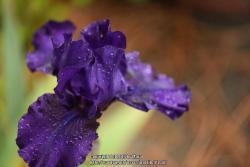Hi Lee-Roy-
Legend has it that the breeder of the original Knock-Out Rose did it by spraying his breeding roses with ground up diseased rose leaves. He used no poisons. Then he only kept the offspring that seemed most disease resistant. I also read an article somewhere about a Hellebore breeder, who said the key is to get rid of any plant that is not really vigorous and healthy, and only then look at the flowers. I think we have all had the unpleasant experience of buying a plant with a beautiful flower, but the plant is not vigorous and gets sick and dies. Or is not sturdy so it flops. In rose breeding, for decades they sprayed the h... out of them all, so they all survived in the nursery, but we all know how crappy those plants looked in our gardens, sick and spindly!
I have become interested in this topic too.
I think you could reasonably try using one parent that is disease resistant, crossing with one that has your desired flower form. I would avoid all use of pesticides, so you can see which ones are not resistant and "Rogue out" the yucky plants.
I think breeding with infected parents would be fine, then select the healthiest offspring. "Rogue out" the sick ones, do not use them for the next generation.
I did a 30 second internet search about Knock-Out Rose, here is a link to a little article on it, I know there are more extensive explanations.
I have not done this, but I think you should know in two generations if your program is working.
For example, in my gloomy chilly damp climate, zinnias are "iffy". But some years ago a new one came on the market, called Profusion Orange, that actually does OK here. If I were to try zinnia breeding, this would be one of my parents (if it is fertile I don't know if it is).
This kind of plant breeding does not require any fancy stuff, we can try breeding in our own gardens(well, maybe a blender to mix up a pathogenic spray). If I were to try and breed healthier Hollyhocks (Alcea rosea), I would not need a spray, every plant here gets rust, so it would quickly be obvious if a plant was resistant. I might try and cross with Alcea rugosa, the Russian Hollyhock, which are supposedly much more resistant to rust.
http://www.walterreeves.com/la...

